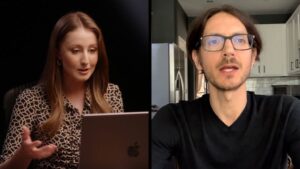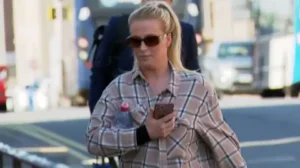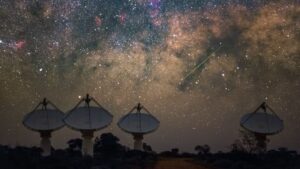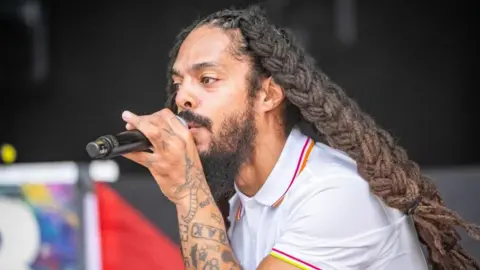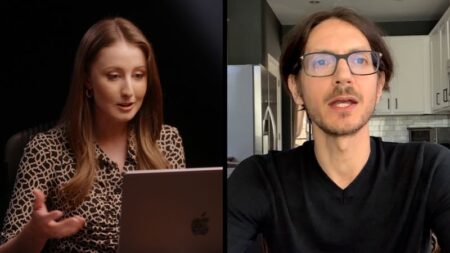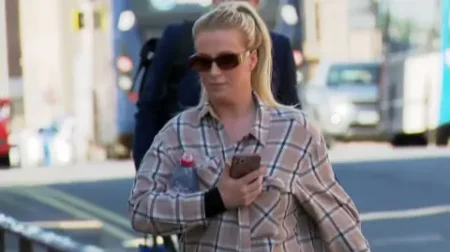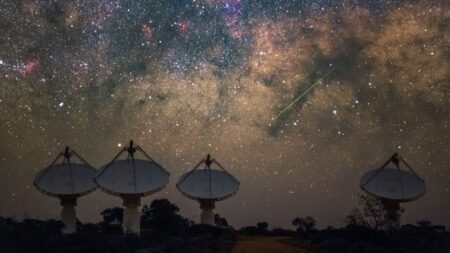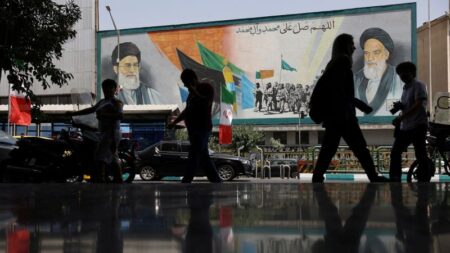In a recent incident that has sparked widespread outrage, the British Broadcasting Corporation (BBC) admitted that it should have cut away from a live broadcast of Bob Vylan’s performance at the Glastonbury Festival. During the concert, the band’s lead vocalist, Bobby Vylan, led the audience in chanting “death, death to the IDF [Israel Defense Forces].” This moment raised significant concerns regarding the content of live broadcasts and the responsibility of media outlets to regulate emotionally charged events.
In an official statement issued on Monday, the BBC expressed regret for not pulling the stream while the band was performing, acknowledging that the situation escalated in a way that merited immediate intervention. The network stated, “The team were dealing with a live situation but with hindsight we should have pulled the stream during the performance. We regret this did not happen.” This admission comes at a time when scrutiny surrounding broadcast ethics and content regulation is particularly high.
Adding to the tension, the broadcasting regulator Ofcom indicated that the BBC “clearly has questions to answer” concerning its live coverage of the event. The comments made by the singer did not go unnoticed by governmental authorities either. Culture Secretary Lisa Nandy pressed for an explanation from BBC director general Tim Davie about why such contentious remarks were aired live, further amplifying political pressures on the BBC.
Glastonbury Festival organizers added to the chorus of concern, stating they were “appalled” by the remarks, asserting that they had crossed a line that should never be crossed in public discourse. The organizers acknowledged their commitment to ensuring that the festival remains a space free from hate speech and divisive rhetoric.
On the matter of freedom of expression, a BBC spokesperson stated, “The BBC respects freedom of expression but stands firmly against incitement to violence.” They specifically labeled the sentiments expressed during the performance as “utterly unacceptable” and declared they have no place on their broadcasts. Furthermore, the broadcaster announced that guidance on live event broadcasting would be reviewed to better handle similar situations in the future.
Critics of the performance have drawn attention to additional comments made by Bobby Vylan during the same set, in which he shouted “free, free Palestine” and referenced the phrase “from the river to the sea, Palestine will be free,” which many perceive as calling into question Israel’s existence. These comments have reignited heated debates concerning the boundaries of political expression in entertainment venues and the media’s role in moderating those discussions.
In a forthcoming statement, Ofcom indicated they were in communication with the BBC to understand the rationale behind the live broadcasts of such contentious remarks. A spokesperson emphasized their concern over the live stream and reiterated that the BBC must provide clear answers regarding its decision-making and compliance with editorial guidelines.
Bob Vylan, the punk-rap duo from London, known for their politically charged lyrics and performances, formed in Ipswich in 2017. They have made previous festival appearances and toured with well-known acts such as the Offspring and Biffy Clyro. Following the controversy, Bobby Vylan took to Instagram to express, “I said what I said,” in defense of political activism, reinforcing the notion that it is crucial for young people to witness activists “shouting… on any and every stage that we are offered.”
Political reactions have continued to come in, with figures such as Prime Minister Sir Keir Starmer labeling the statements made on stage as “hate speech,” demonstrating a cross-party consensus on condemnation of the chants and, notably, the BBC’s coverage of them.
The situation remains dynamic as cultural institutions navigate the complexities of live broadcasts, freedom of expression, and the responsible dissemination of content. As the BBC reevaluates its practices and policies surrounding live event coverage, the Glastonbury Festival organizers have also affirmed their stance against impermissible rhetoric, reinforcing that there is no place for antisemitism or incitement to violence within their event’s scope. The fallout from this incident is likely to influence not only the broadcasters involved but also the broader conversation on the role of media during live performances.

